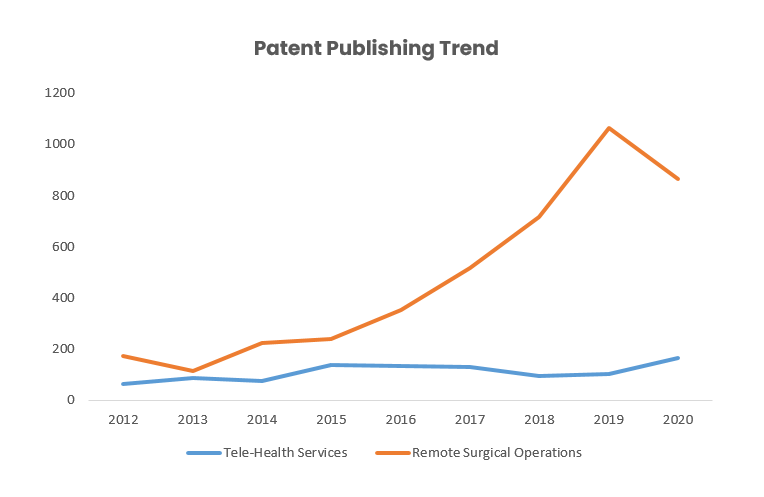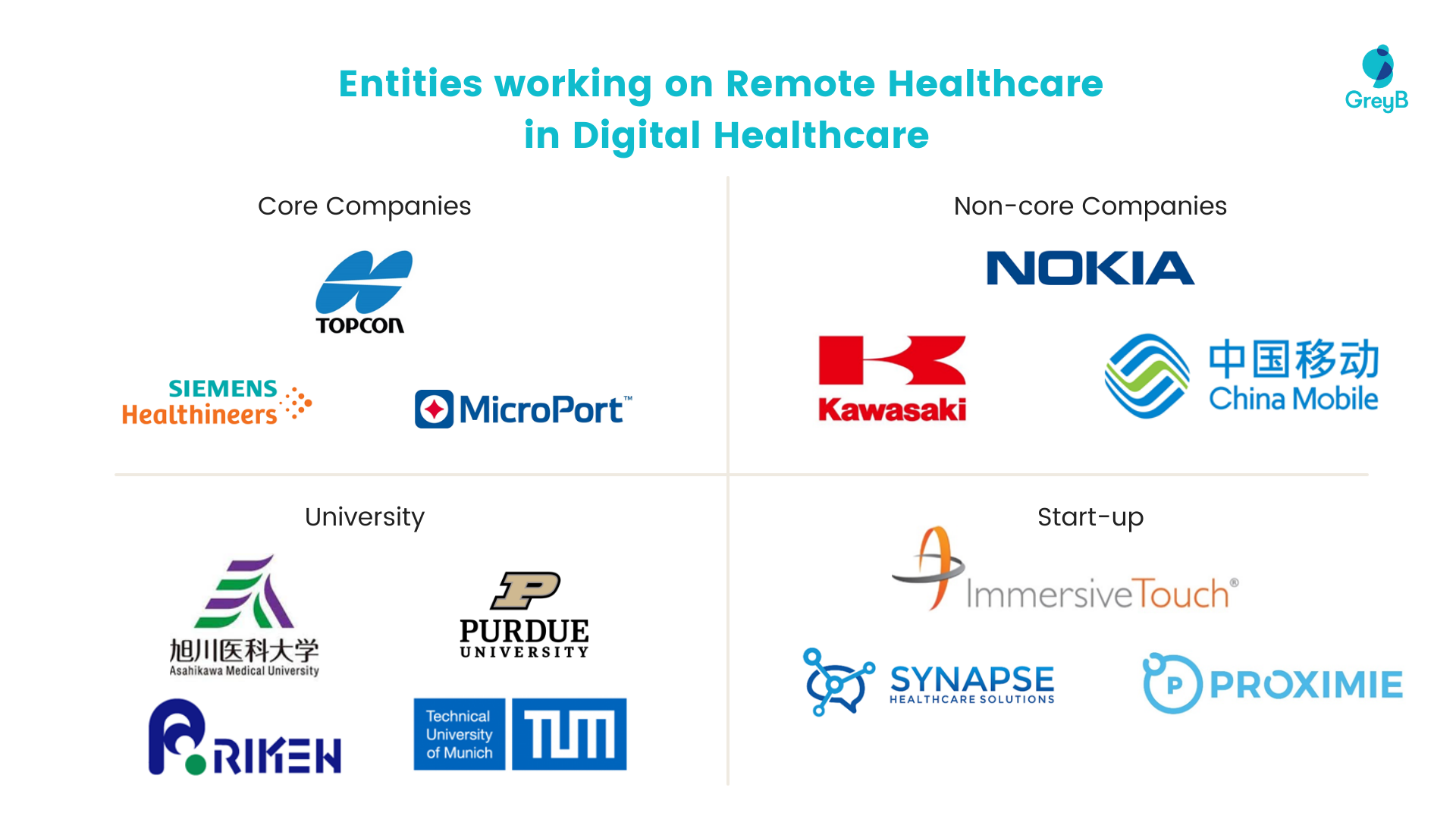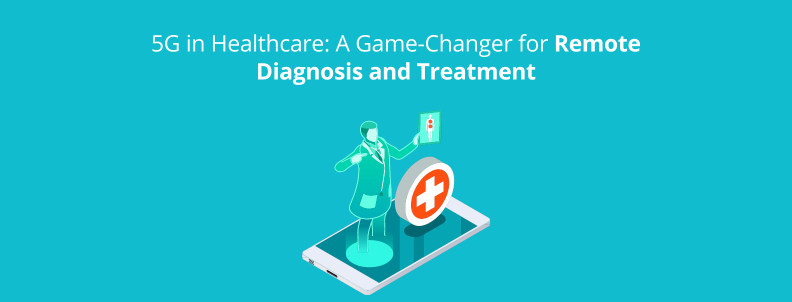The healthcare industry is witnessing a paradigm shift in patient care. The advent of remote healthcare Post COVID-19 has democratized access to quality and affordable medical services across the globe.
According to the U.S. Centers for Disease Control and Prevention, telehealth visits in March 2020 saw a staggering 154% increase compared to the previous year.
However, the influence of digitization extends far beyond telehealth consultations. Remote surgical operations, enabled by sophisticated robotics and virtual reality technologies, are challenging the traditional boundaries of medical practice.
Upon researching, we found that Urology dominates the application of remote surgery, accounting for 51% of the total. This suggests that upcoming advancements in remote surgical techniques will likely be concentrated in this field.
Curious about the other departments advancing in digital healthcare?
Our digital healthcare trend report has all the answers. Fill out the form below and download the report:
While the patent filing in telehealth has remained somewhat constant, remote surgical healthcare has grown exponentially since 2015.

Evidently, various entities are working on cutting-edge telemedicine platforms and revolutionary remote surgical procedures to create a more equitable, efficient, and patient-centric healthcare ecosystem.
Where is Remote Healthcare heading?
Since 5G technologies have reduced the latency from 0.27 seconds to 0.01 seconds, this has enabled its extensive usage in remote surgical trials.
Using 5G to enable Remote Proctoring
The IRCCS San Raffaele Hospital in Milan, in collaboration with Vodafone and Artiness, a Milan-based startup, recently conducted a clinical trial of remote proctoring technology for invasive heart surgery.
Under remote proctoring, a medical device expert remotely guides the correct implantation of medical devices into the human body. The system employs advanced technology such as Multi-access Edge Computing, Augmented Reality (AR) visors, and a 5G network.
This facilitates real-time access to patient data and a patient-specific holographic heart model, enabling the expert to provide surgical instructions without delay. Moreover, the surgeon can interact with the 3D model to convey procedural complexities.
Using 5G to Carry Laparoscopic Surgery
Shanghai MicroPort MedBot, a Chinese company, has developed a laparoscopic surgical robot named “Toumai,” which recently completed two ultra-long-range 5G robotic surgeries in urology. These surgeries were performed remotely through a 5G connection between two hospitals located 5000 km apart, making them the longest 5G remote robotic surgeries ever performed.
To enable effective remote surgery in a virtual air operating room, the Toumai® 5G remote technology utilizes several cutting-edge features, including a three-dimensional (3D) realistic surgical field, flexible wrist surgical instruments, and a 5G network.
The use of 5G remote technology ensures minimal delay in image transmission and provides efficient control through simultaneous transmission and reproduction of 3D images. Thus enabling real-time monitoring to ensure safe surgery.
Furthermore, The Toumai robot was authorized for marketing by the National Medical Products Administration (NMPA) in China in January 2022.
Who is working on Remote Healthcare?

Remote healthcare has seen a significant amount of collaboration between various organizations, with universities being key players in these efforts.
Significant Collaborations in Remote Healthcare
Topcon, a Japanese electronics company, has partnered with various academic institutions to facilitate research in the area.
In collaboration with Asahikawa Medical University
Topcon collaborated with Asahikawa, a Japanese Medical University. Their patent WO2022065264A1 uses optical coherence tomography (OCT) to generate blood flow information and transmit it to a remote location.
In collaboration with Riken
Topcon also collaborated with Riken, a Japanese research institute. Their patent WO2021220911A1’s research is based upon a data transmission system that transmits ophthalmic data to a remote location.
In addition to the core companies, major non-core players in the industry have been exploring the area of remote surgeries and have filed patents to protect their innovative ideas.
Telecom players are working on developing technologies for remote surgeries
Telecom players across the globe have started their technological developments in the field of virtually assisted remote surgeries. Here are a few worth mentioning –

Qualcomm has worked on data processing of a wireless device using computing resources (dynamically track factors) of a remote network computing device. The company has filed a patent US11265263B2 for this innovative approach.

Xiaomi’s patent EP4002261A1 describes a method for creating a video sequence that can be utilized in remote surgical procedures. This technique involves applying triangular patch deformation to two neighboring images to generate the sequence.

The research EP4088444A1 by Cisco discusses the development of a wireless access system that can provide ultra-reliable low-latency communications for remote surgeries. The system aims to achieve a latency of 1 ms and a reliability rate of 99.999%.
Conclusion
We believe that with the increasing proliferation of high-speed connectivity coupled with technological advancements, this domain is about to witness breakthrough innovations in the near future.
Get the full Digital Healthcare Trends 2024 Report by filling out the form:
Authored By: Ambuj, Navjit, and Sushant, Patent Intelligence
Edited By: Ridhima, Marketing
Also read: Digitalizing The Healthcare Sector: What Should We Expect In 2024?









